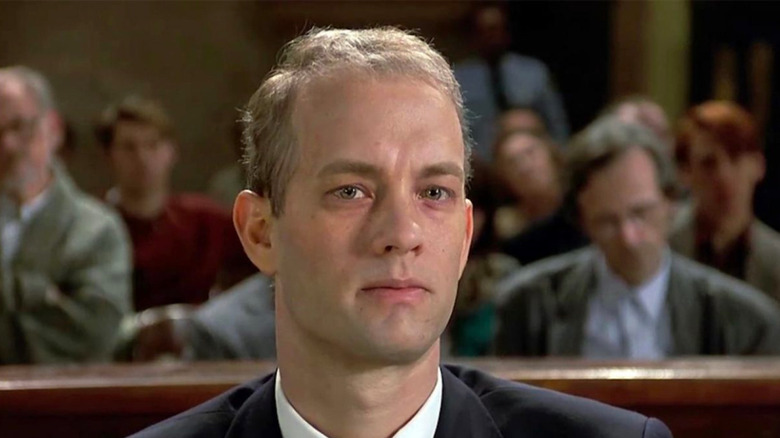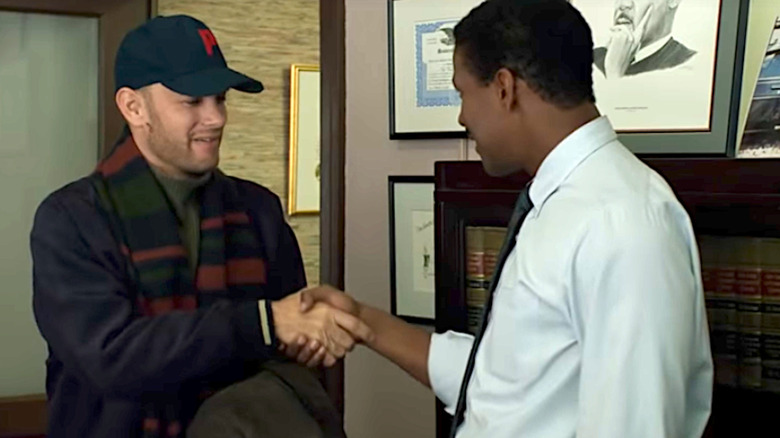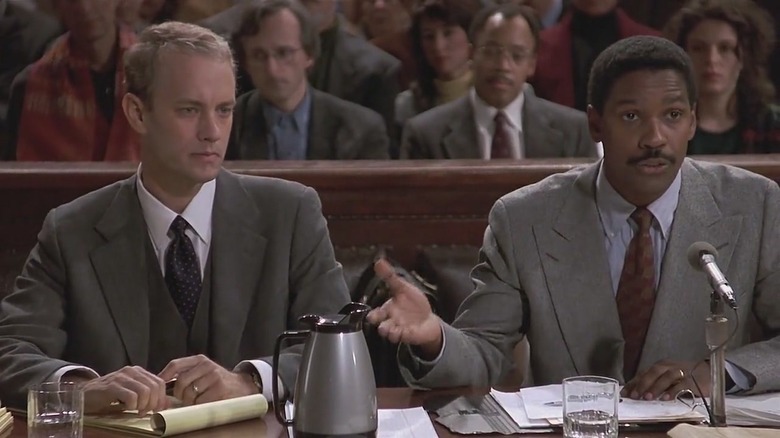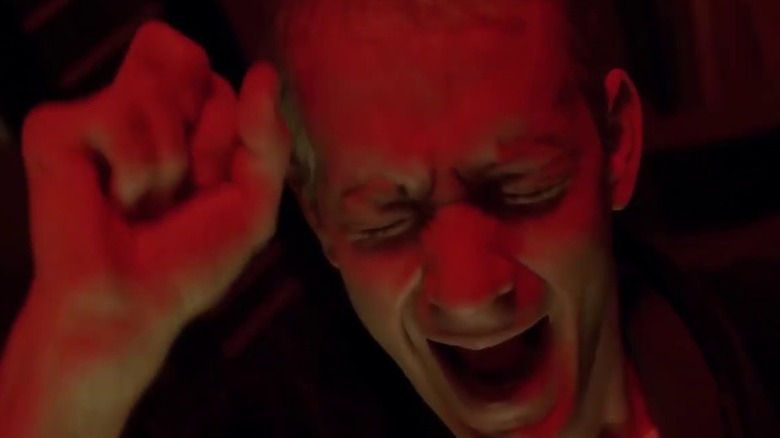One Of Steven Spielberg's Few Regrets Is Not Directing This Tom Hanks Film
Nothing screams "must-see" quite like a new Steven Spielberg and Tom Hanks collaboration. They're the dream duo of modern American cinema, the closest thing we have to a Frank Capra-James Stewart tandem. They've made five films together, and all but one ("The Terminal") are legitimately great.
The only baffling element of their creative partnership is that it didn't happen sooner. Hanks was in his 40s and Spielberg in his 50s when they came together for 1998's devastating World War II epic "Saving Private Ryan." If you're wondering what took so long, Spielberg is right there with you. If the two-time Academy Award-winning filmmaker had been able to swing it, he would've loved to direct Hanks in 1993's "Philadelphia."
Hanks finally proves his worth as a dramatic actor
The Jonathan Demme-directed drama about Andrew Beckett (Hanks), a gay corporate lawyer who teams up with an initially homophobic prosecutor, Joe Miller (Denzel Washington), to sue his former firm for discrimination when they fire him upon learning he has AIDS, is the most pivotal work in Hanks' oeuvre. Hanks entered the 1990s as primarily a comedic lead. He'd had an impressive run of hits in the '80s stretching from "Splash" to "Turner & Hooch," but had faltered at the box office when he took on dramatic leads in films like "Every Time We Say Goodbye" and "Punchline." In 1990, he suffered a massive setback via the back-to-back bombs of "Joe Versus the Volcano" and "The Bonfire of the Vanities." He got back in the good graces of moviegoers two years later with "A League of Their Own," and scored the biggest hit of his career to date in the summer of 1993 with "Sleepless in Seattle."
After completing the Nora Ephron rom-com, Hanks threw himself into the role of Beckett. The star shaved his head and shed 26 pounds to play the AIDS-afflicted character. Spielberg, who was friends with Hanks at the time, was moved by the actor's commitment to the role. In 2016, Spielberg told Time's Daniel D'Addario, "I've got videos of Tom with no hair with a baseball cap on." Spielberg knew the basic gist of the story and was prepared to see his buddy in an incredibly challenging role. Even then, when he finally saw the movie (which wound up losing the Best Picture Oscar to Spielberg's "Schindler's List"), he was blown away.
A one-of-a-kind disappearing act
Spielberg said Hanks' disappeared so deeply into the character that he forgot he knew the actor personally. He considers it "[O]ne of the most noble statements I had seen in film." As he explained to D'Addario:
"It was a ground-breaking achievement in the social context, and the context of tolerance. And opening people's minds to something they were very closed to in those days; an issue that was a clear and present danger to everyone. And it was really–that was one of the most shattering experiences I've had seeing a movie, when I knew the actor and then discovered that I didn't know the character. The knowing of the actor didn't knock down the fourth wall."
Spielberg also added that he really wishes he had had the chance to direct Hanks in the film, but he was making "Schindler's List" at the time.
Assessing the problematic legacy of Philadelphia
Though people rightly criticized the casting of a straight man like Hanks in the role of a homosexual (a position the star now agrees with), he does manage to capture the vigorous inner life of this wondrously talented man. Beckett may be stricken with anguish, but he is not consumed by it. The scene in which Maria Callas' performance of "La Mamma Morta" sends Hanks soaring off into a deep reverie, accentuated by Demme's floating camera and highly theatrical lighting, has us gasping through tears until the composition resolves in a major chord, at which point Beckett and the audience brighten just a little. "I am love," sings Callas.
It's a powerfully cathartic moment. I fully understand why Spielberg wishes he could've directed it. But this is Demme through and through, a heartbreaking reminder of how much we lost he succumbed to esophageal cancer and heart disease in 2017. "Philadelphia" is certainly a film of its moment, one that would look much more different if made today, but for all its fundamental shortcomings it remains a bracingly humane work. It is pure Demme.



